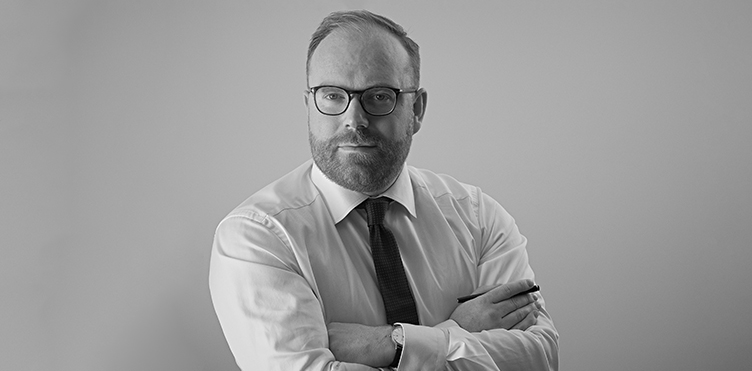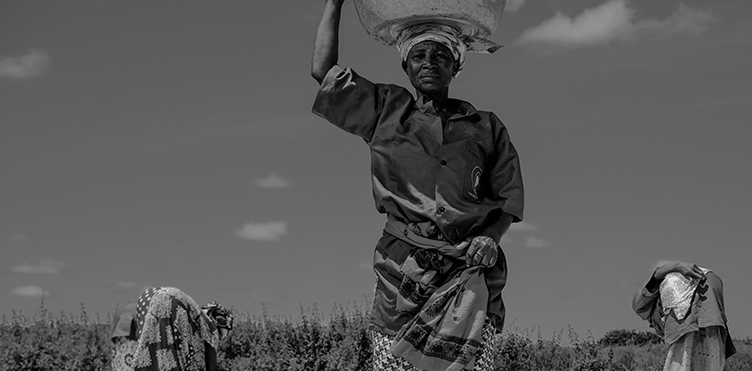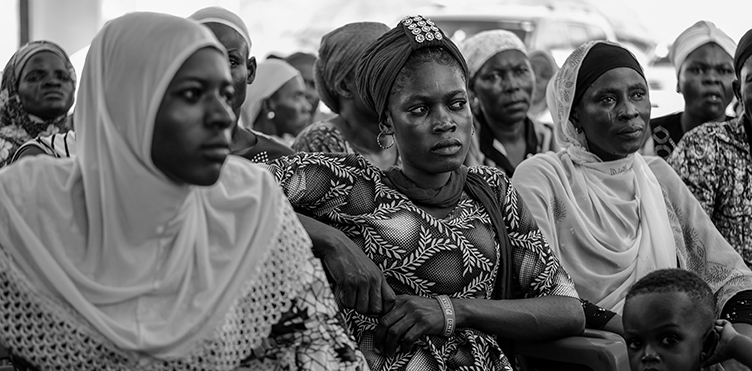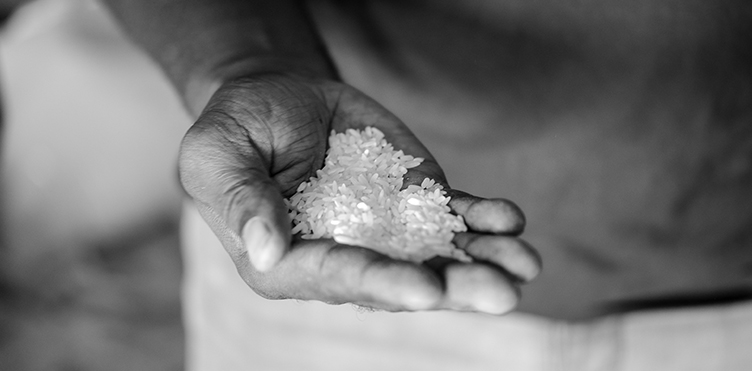
When Philip Milley (JD’13) walked into UNB Law more than a decade ago, he never imagined his legal career would one day touch millions of lives across the globe. Today, as Director of Legal and Compliance at the Mastercard Foundation—one of the largest foundations in the world—he helps steer programs that advance education, expand financial inclusion, and open pathways to dignified, fulfilling work for young people in Africa and Indigenous youth in Canada.
“I am fortunate to work at an organization where the legal work is directly tied to improving lives,” Milley says. “It is not abstract. Every contract we sign, every partnership we enable, has the potential to change the trajectory of someone’s future. I have been able to work on some of the most complex, significant and impactful work that any Canadian organization has engaged in.”
Milley’s path to one of the most influential legal roles in international development is a lesson in recognizing opportunity and a willingness to step into the unknown. After graduating in 2012, he began his career in private practice at Stewart McKelvey in St. John’s, NL, working across a variety of areas: insurance litigation, marine law, administrative and federal court matters, employment issues, corporate work, and arbitrations.
Then came the call that changed everything. A lawyer he had met years earlier at UNB Law was looking for an in-house lawyer in the little-known field of charity and not-for-profit law.
“I was torn,” Milley recalls. “It was a great opportunity in a unique field, but also scary. I did not know if I was closing the door on private practice, and that is a big concern early in your career. At the time, the Law Societies of Canada did not even recognize charity/not-for-profit law as a practice area.”
Milley spoke with a managing partner, who approved a temporary leave of absence. He moved to Ontario, got licensed, and began the in-house role.
“I took this big step, and it was one of those pivotal decisions in my life. I was advising the Canada Revenue Agency on its charity law policies and regulations under the Income Tax Act and pursuing other very interesting opportunities. Stepping into something so unfamiliar was daunting—but also incredibly exciting.”
In 2016, opportunity came knocking again. Milley joined the Canadian Council of Christian Charities (CCCC) as Associate Director, Legal Affairs. At the time, the four Cs was the largest association of charities in Canada, representing over 3,400 organizations.
“I had the opportunity to appear before the Supreme Court of Canada twice, doing interventions; to work on advisory groups with the CRA; to consult on amendments to Ontario’s trust legislation; and to publish extensively on the law of charities and not-for-profits.”
By 2018, Milley’s growing reputation in charity and not-for-profit law had caught the attention of the Mastercard Foundation. The organization was in the midst of a bold expansion, launching transformative initiatives across Africa and Canada. Despite being one of the largest philanthropic organizations in the world, it had no in-house legal department, relying entirely on external counsel.
“I was the second lawyer they hired,” Milley said. “We had to build the processes, policies, and team to support operations on a global scale. One of the biggest challenges was earning trust—helping colleagues understand the role of legal, how we can offer support, how we are not the department of ‘no,’ but an enabler to making an impact.”
The Foundation was scaling up immensely in terms of asset values, headcount, and jurisdiction. Under Milley’s guidance, the sole Toronto office evolved into a legal department spanning seven jurisdictions across Africa—Nigeria, Ghana, Senegal, Kenya, Rwanda, Ethiopia, and Uganda. Outside of the operational growth, the Foundation also launched its ambitious goal: to enable 30 million young Africans to access dignified and fulfilling work and 100,000 Indigenous youth in Canada to complete their education and transition to meaningful work aligned with their traditions, values, and aspirations.

Today, Milley’s role is about more than managing legal risk—it is about enabling the Foundation’s mission as a means of relieving poverty and advancing education.
“No two days look the same,” he explains. “My job is to guide the organization toward its goals in a compliant way. That might mean handling litigation, negotiating major projects, navigating conflicts of laws and complex multi-jurisdictional issues, or sitting down with our programs, impact teams, and partners to design initiatives that achieve our philanthropic objectives while staying within regulatory boundaries.”
This also means overseeing, quite literally, billions of dollars in philanthropic programming.
“Recently, I supported the creation of an asset management corporation to help manage our US$50 billion endowment and direct those resources into strategic investments,” Milley says. “This work is essential—it underpins our ability to sustain and expand the programs that are making an impact around the world.”
His work has taken him across the globe—advising on projects, collaborating with partners, and representing the Foundation in discussions with international bodies such as the European Union, the African Union, and even heads of state.
“It is very diverse. One day I could be meeting a young person we are supporting through education, and the next I am working with global leaders to get a project off the ground.”
On a recent trip to Africa, Milley met with colleagues across the Foundation’s offices—sharing guidance and support—before visiting rural communities to see firsthand how their programs are transforming lives.

“In rural Rwanda, I visited a woman-led cooperative, talking with farmers tending a small plot of land we are helping sustain. I listened to their stories and challenges, learning how we can better respond to their needs. My role blends leadership and law, but at its core, it is about one thing: supporting young people to create real impact—improving their livelihoods and contributing to their communities.”
One of the Foundation’s most high-profile initiatives under Milley’s leadership was Saving Lives and Livelihoods, a $1.5 billion partnership with Africa Centres for Disease Control and Prevention (Africa CDC). Launched in 2021, the initiative aimed to secure and deliver COVID-19 vaccines across Africa, strengthen health systems, and prepare for future pandemics.
“This was development work at its most urgent,” says Milley. “We were negotiating with manufacturers, navigating multiple jurisdictions, and doing it all under incredible time pressure—because every day, every week mattered.”
The initiative ultimately procured tens of millions of vaccine doses and helped improve public health infrastructure across the continent. For Milley, it was a clear example of how legal expertise can be a force multiplier for impact.
“I am particularly proud of Saving Lives and Livelihoods,” he shares. “At the height of the pandemic, we worked to ensure vaccine access and equity for over 65 million Africans. I traveled across the continent, from major cities to rural communities, seeing last-mile delivery firsthand. Our work meant collaborating with the African Union, the African Vaccine Acquisition Trust, manufacturers like Johnson & Johnson and Moderna, and the UN to coordinate logistics across all member states. It was challenging but deeply rewarding—helping save lives in real time.”
While much of the Foundation’s work is in Africa, it also runs significant programming in Canada, with Indigenous youth and communities. Milley highlights initiatives that support education, entrepreneurship, and the revitalization of language and culture.
“In both contexts, it is about unlocking potential,” he says. “Whether it is a young person in Nairobi starting a business or a student in Regina accessing post-secondary education that integrates Indigenous knowledge, the aim is the same—to remove barriers and create opportunities.”
Managing this dual focus requires a legal team adept at switching contexts—from African commercial law to Canadian charity law, often in the same day. It also means constant adaptation to shifting global realities, from political change to economic instability to climate-related disruptions.
“As lawyers, we are inevitably a support function, and being able to get that much closer to the work is so critical to understanding how your advice can be delivered.”
For Milley, that connection to the work recently came to life during travels across Atlantic Canada, where he saw firsthand the projects the Foundation has been supporting in partnership with Indigenous communities. The trip included collaboration with fellow UNB alumnus Frank McKenna (LLB’74) and the McKenna Institute, the Joint Economic Development Initiative, and Ulnooweg Education Centre. Together, they are working to enable thousands of Indigenous youth access to education and employment programming opportunities.
The experience was especially meaningful for Milley because it brought him full circle.
“I was at the ground floor of that project years ago, pre-pandemic, visiting the communities on the East Coast and then again this past year seeing how the work has grown, how there’s been so much positive impact,” he said. “It is so touching to hear from the people that we are supporting how impactful the work is—particularly as someone who studied and lived on the East Coast. It was even more important and meaningful.”
Milley does not shy away from the realities facing international development. He is acutely aware of the forces making life harder for those his work aims to help. Climate change, for example, is disrupting the livelihoods of smallholder farmers across the African continent. Without certainty in their crops, there is no certainty in their next paycheck. Adding to this are government cutbacks to international development funding—setbacks that ripple across entire sectors.
“There are so many headwinds right now,” Milley explains. “International organizations are facing funding crunches. The global political climate affects trade, and that in turn drives markets. In many places, if someone does not have a source of livelihood that enables them to care for their families and contribute to their communities, they are in a very difficult position—whether that is in Indigenous communities in Canada, across the African continent, or elsewhere.”

Despite this sobering landscape, Milley remains hopeful. He has seen firsthand how collaboration can magnify impact and how shared vision can push through even the strongest headwinds.
“There are so many organizations working well together,” he says. “I think there is a great opportunity for governments to help align how philanthropic dollars are used. Everybody is optimistic about wanting to do the right thing.”
That optimism, he believes, needs to be matched with modernization. Much of the legal framework guiding international development, philanthropy, and charitable work is rooted in centuries-old thinking—literally.
“International development, philanthropy, the law of charity—it is still rooted in 19th-century thinking, with case law dating back to the 1601 Statute of Charitable Uses. We need to develop the law so organizations and individuals trying to make a difference can do it in a way that is responsive to 21st-century realities. As we rethink what it means to apply the law in a meaningful way, I think there is much growth ahead that can deliver real impact for individuals.”
For Milley, it always comes back to people. He has met countless individuals brimming with talent and ambition who simply need a fair chance.
“One of the things I have learned in the work that I do is that those we support are oftentimes just seeking an opportunity,” he reflects. “They are brilliant. They are hardworking. They just do not have the chance to leverage that—to acquire education or find a source of dignified work.”
It is that belief—that opportunity is the bridge to transformation—that keeps Milley focused.
“The headwinds will continue, but if we are driven by our values and steadfast in our strategies, young people will benefit—whether it is here in Canada or around the globe.”